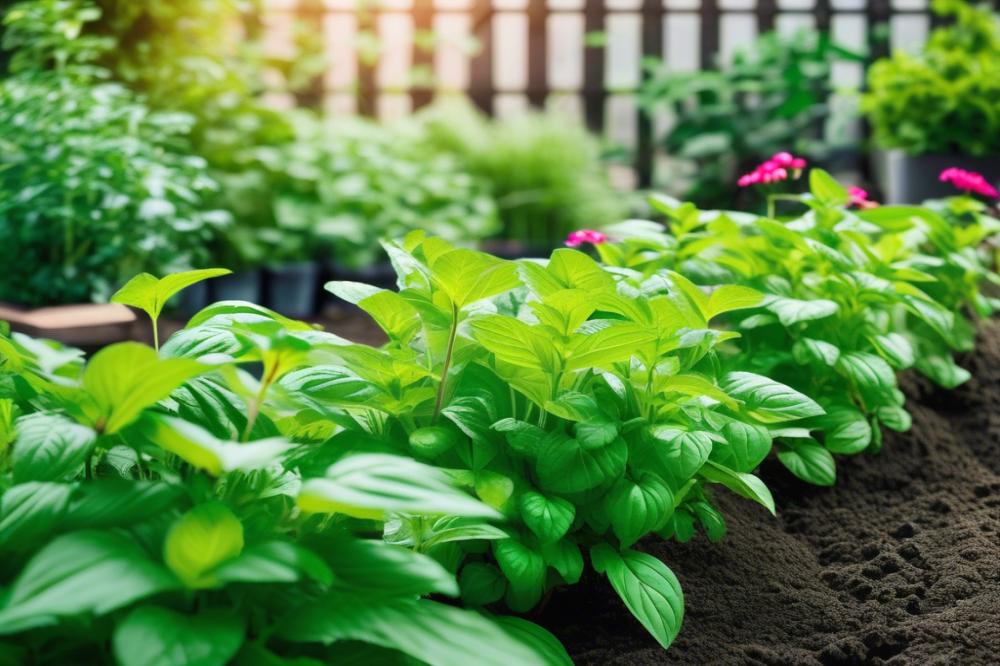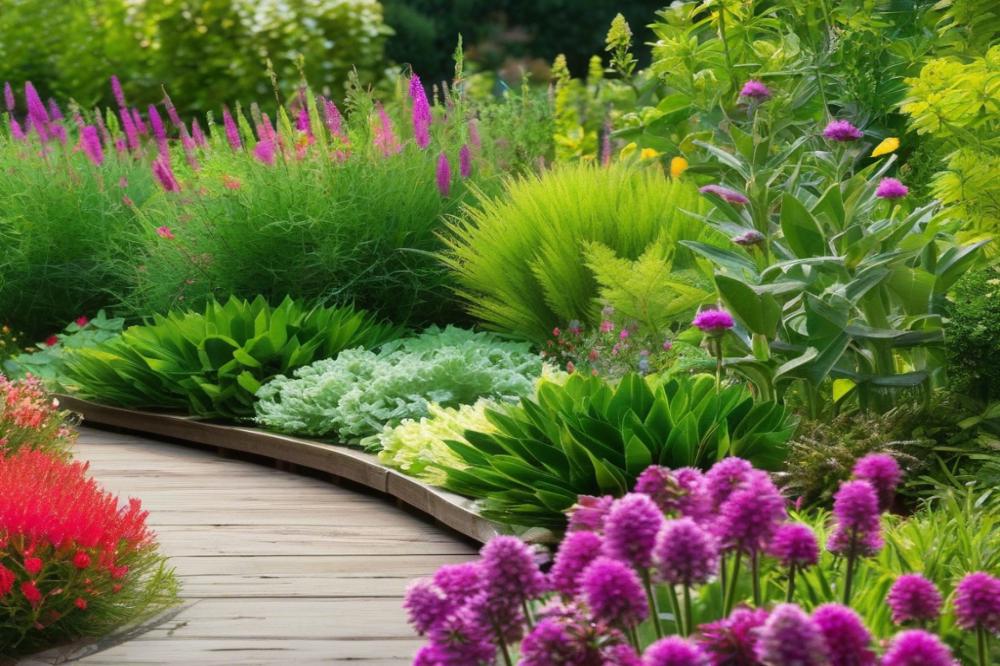The Benefits of Planting Herbs Like Basil and Mint for Pest Deterrence
Gardening is an art, and every gardener aims to create a thriving landscape. One interesting approach to tackling pests is through herb pest deterrence. This method involves using specific plants that can help keep unwanted insects at bay. As more people seek ways to garden sustainably, interest in organic practices has skyrocketed. Many gardeners are now looking for natural solutions that not only improve their gardens but also protect the environment.
Aromatic plants like basil and mint hold a special place in this growing trend. Their scents are not just pleasing; they pack a punch against various pests. Basil’s properties are well-known for repelling flies and mosquitoes, making it a popular choice among herb gardening enthusiasts. If one plants mint, its fragrance can deter ants, spiders, and other bothersome insects. These pest-repelling herbs serve as excellent companions in the garden, promoting healthier plant relationships through companion planting.
As more garden tips circulate, it becomes clear how vital these herbs are for organic gardening. Not only do they help keep pests away, they also enrich the soil and can attract beneficial insects. With a little strategic planning, gardeners can create an ecosystem that works for them, making their outdoor spaces enjoyable retreats. The basil mint benefits extend beyond pest control; they also offer freshness to your meals and delightful scents to your environment.
Understanding herb pest deterrence
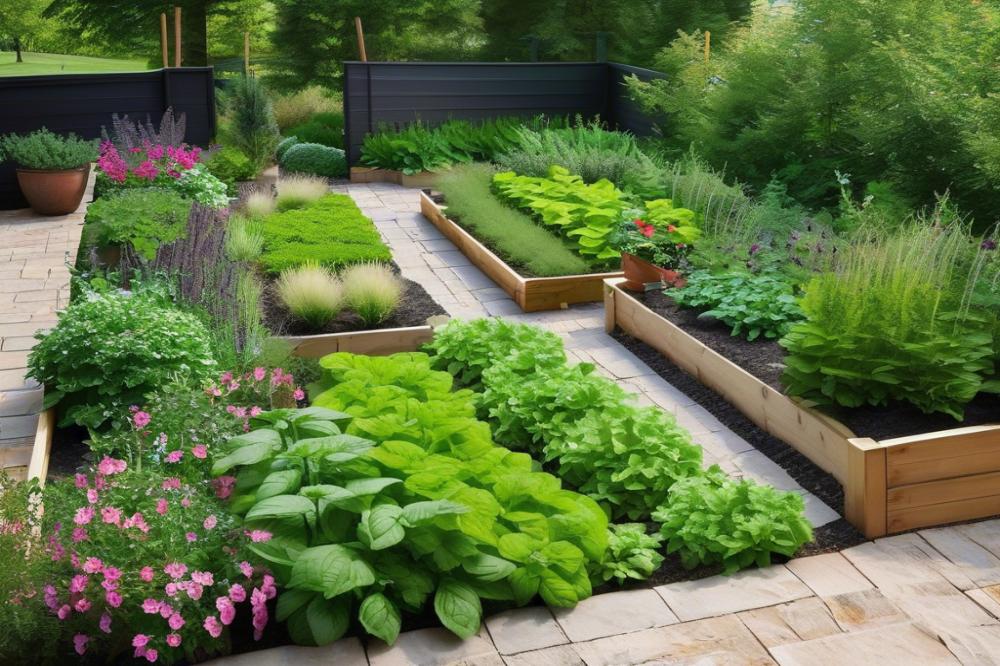

Herb pest deterrence refers to the use of specific plants to naturally manage pests in a garden. This method is increasingly popular among gardeners interested in organic gardening. Using plants like basil and mint can be a simple yet effective way to keep unwanted insects at bay.
Basil possesses properties that repel certain pests, such as mosquitoes and flies. The strong scents released by these aromatic plants can influence pest behavior, making them less likely to approach nearby plants. Mint fragrance works similarly, deterring not only common garden pests but also enchanting gardeners with its refreshing aroma.
Companion planting plays a crucial role in creating a balanced ecosystem in the garden. By placing pest-repelling herbs alongside vegetables and flowers, gardeners can form natural barriers that protect their crops. These practices lead to a healthier garden environment while supporting sustainable gardening principles.
Incorporating herb gardening into your landscape is a smart way to enhance biodiversity. A diverse plant mix attracts beneficial insects that prey on harmful pests. This helps maintain a stable population of good bugs, contributing to natural pest control.
Following garden tips on planting combinations can increase your success rates dramatically. For instance, planting basil near tomatoes can not only improve flavor but also ward off pests. Such synergy makes gardening both practical and enjoyable.
Properties of Basil and Its Pest Deterrent Effect
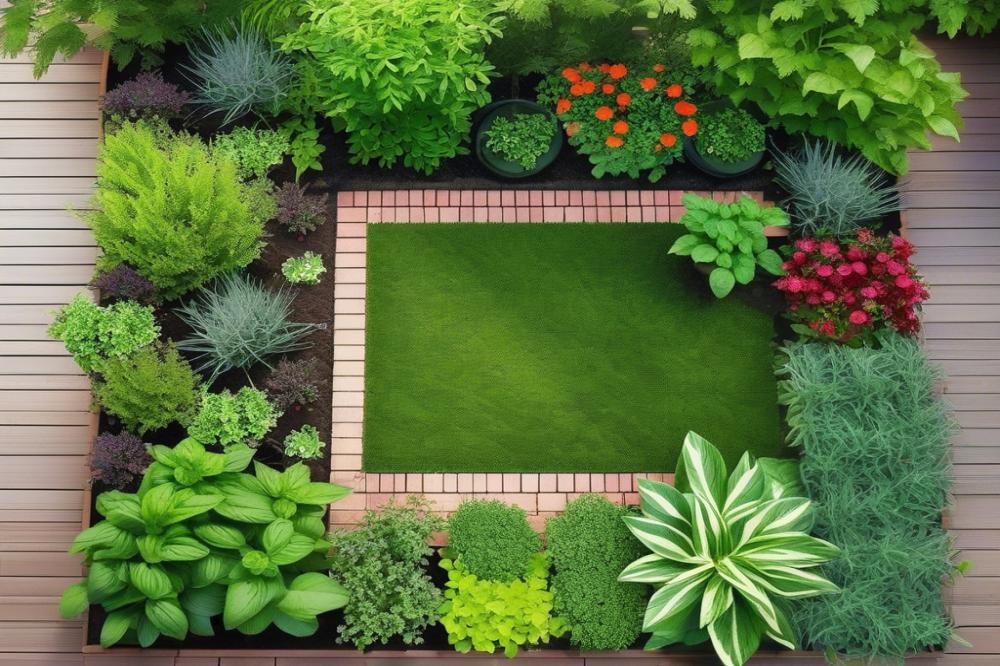

Basil, widely known for its culinary uses, also possesses several properties that make it effective for pest deterrence. The plant emits a strong aromatic scent, which can repel various pests, including mosquitoes, flies, and aphids. Its essential oils contain compounds like eugenol, which have proven to be hostile to certain insects. This can be highly beneficial in organic gardening, promoting a healthier environment for both plants and gardeners.
When basil is planted near other crops, it acts as a protective shield. Companion planting is a method that involves growing different plants together to enhance growth and deter pests. Basil’s natural scent confused pests, leading them away from vulnerable plants. This is particularly important for vegetables like tomatoes and peppers, which can benefit from having basil nearby. The pairing of these plants may not only deter pests but could also improve the flavor of the crops due to the aromatic properties of basil.
Garden tips for integrating basil into your layout are straightforward. Plant basil at the edges of your vegetable garden or intersperse it among crops. This strategy makes the most of its capabilities while also creating an aesthetically pleasing garden. Consistent harvesting encourages bushier growth and maintains its strong scent. Make sure to regularly prune the plant to prevent it from flowering too early, as blooming can dilute its pest-repelling abilities.
In addition to basil, considering other aromatic plants can enhance pest control. For example, mint, with its distinctive fragrance, can also serve as a powerful deterrent. While basil repels certain pests, mint focuses on others, such as ants and aphids. Together, they create a comprehensive approach to natural pest control in your herb gardening efforts.
Sustainable gardening practices thrive on understanding these relationships among plants. Basil and mint not only serve practical purposes but also promote a broader ecosystem within the garden. By choosing pest-repelling herbs strategically, you can cultivate a healthier and more productive environment. So, as you plan your garden, think about these fragrant allies and their potential to protect your plants.
Mint Fragrance and Its Role in Pest Control
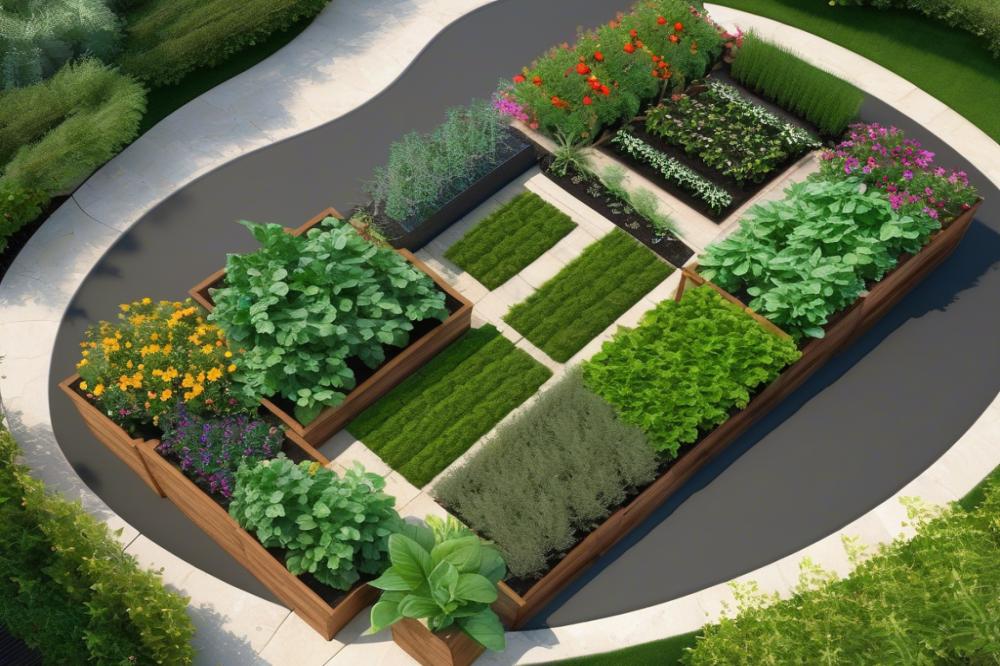

Mint is known for its strong and refreshing scent. This fragrance has a unique ability to repel pests such as ants, aphids, and spiders. Many gardeners appreciate how this aromatic plant serves a dual purpose. Not only does it enhance the flavor of dishes, but it also acts as a natural deterrent in gardens.
Numerous varieties of mint can be cultivated in herb gardening. Peppermint and spearmint are popular choices. Peppermint has a sharper flavor and fragrance, making it effective against a wider range of insects. Spearmint, on the other hand, has a milder scent and is pleasant for culinary uses. Each variety offers distinct benefits for organic gardening and pest control.
Cultivating mint is relatively easy, making it an ideal choice for beginners. The plant thrives in both pots and garden beds. It prefers partial shade but can tolerate full sun. To foster its growth, keep the soil consistently moist but not soggy. Regular pruning also encourages bushier plants and enhances the fragrance.
Consider utilizing the concept of companion planting when integrating mint into your garden. This technique allows mint to protect more vulnerable plants. Basil, famous for its pest-repelling properties, pairs well with mint. They can be planted near tomatoes and peppers to protect them while enjoying their mutual growth.
Garden tips for mint include planting it in containers to control its spread. Mint can be quite invasive if left unchecked. This ensures that it doesn’t take over your entire garden space. Additionally, planting mint near other herbs can create an aromatic display while helping with natural pest control.
Using mint as part of your sustainable gardening efforts can be rewarding. Its strong scent not only benefits your garden but also attracts beneficial insects like bees. Embracing these pest-repelling herbs contributes to a healthier garden ecosystem overall. Explore the world of mint and enjoy its many uses in both cooking and gardening.
Combining Herbs for Enhanced Pest Deterrence
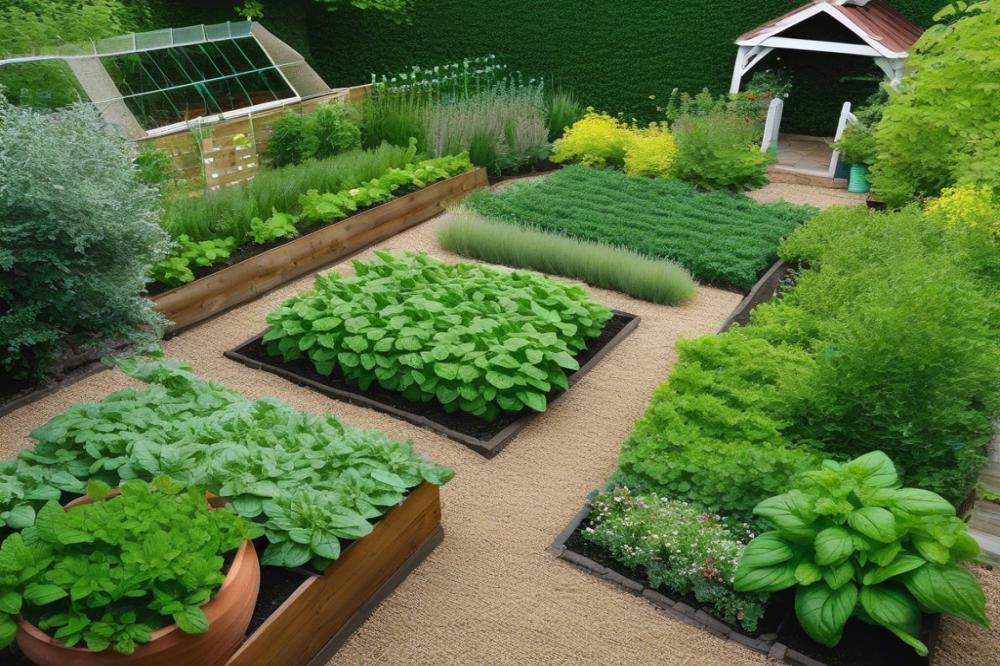

Mixing basil and mint with other plants can create a powerful tool for natural pest control. Companion planting takes advantage of the natural properties of different herbs and how they work together. For example, basil has unique qualities that repel pests like aphids and mosquitoes. Mint fragrance provides an extra layer of defense, driving away those pesky insects that plague many gardens.
Integrating various aromatic plants in one area can enhance their effectiveness. When you plant basil alongside tomatoes, it not only protects the tomatoes but also boosts their growth. In a similar way, adding mint to your herb gardening strategy can help prevent infestations of cabbage moths and other unwanted species. This approach makes your garden more resilient and reduces the need for chemical pesticides.
Anecdotal evidence suggests that combining herbs is often beneficial. Gardeners have noted that when mint was planted near cabbage, the moths seemed to avoid the area altogether. Studies show that diverse plantings allow beneficial insects to thrive while keeping harmful ones at bay. This illustrates the concept of sustainable gardening; it creates a balanced ecosystem in your backyard.
Additionally, mixing herbs can improve flavors and aromas in your cooking. Many chefs recommend pairing basil with garlic or tomatoes for delightful culinary results. By using pest-repelling herbs, you not only defend your plants but also enhance your meals. Some even find that the scents of these plants can change the dining experience entirely.
Ultimately, the choice of herbs matters. Specific combinations can make your garden healthier and more productive. For example, planting rosemary near cabbage is another excellent strategy for repelling pests. Incorporating a variety of herbs creates a dynamic environment that nurtures growth while keeping pests away.
Sustainable Gardening Practices with Herbs
Using herbs like basil and mint for pest deterrence promotes sustainable gardening. This practice helps create healthier ecosystems. With fewer chemical interventions, the environment benefits greatly. Many people enjoy the idea of natural pest control instead of relying on synthetic methods.
When starting herb gardening, consider a variety of aromatic plants. The scents of basil properties and mint fragrance can deter unwanted insects effectively. Growing these pest-repelling herbs in your garden is both practical and enjoyable. By allowing herbs to thrive, you provide habitat and food for beneficial insects. Pollinators, like bees and butterflies, flourish in rich herb gardens.
Incorporating companion planting is an excellent strategy. Certain plants work well together, enhancing growth and repelling pests. For example, mixing basil with tomatoes can boost yields while keeping pests at bay. Additionally, mint grows vigorously but can overtake other plants. Plant mint in pots to control its spread, which helps maintain garden balance.
Consider using organic gardening methods to enrich your soil and promote plant health. Composting kitchen scraps and yard waste enhances nutrient levels. Healthy soil leads to robust herb growth, which strengthens their pest-deterring capabilities. Garden tips often suggest rotating crops yearly, too. This practice keeps soil healthy and helps prevent pest buildup.
Creating a herb garden that supports biodiversity enriches the local ecosystem. Diverse plantings attract various insects, adding complexity to your garden. Encouraging birds and predatory insects can naturally lower pest populations. Cater to your garden’s unique microclimate by selecting herbs that thrive in its conditions. Monitor your plants regularly for signs of both pests and beneficial creatures.
In summary, sustainable gardening practices with herbs empower gardeners. They lead to vibrant gardens while supporting the environment. Adopting these methods yields not just beautiful herbs but a healthier planet.
Final Thoughts
Planting herbs such as basil and mint offers numerous benefits for anyone looking to improve their garden. These plants not only enhance the flavors of meals but also act as a natural barrier against unwelcome pests. Their strong scents can deter insects, making it less likely for them to invade your garden space. Choosing to incorporate these aromatic herbs can lead to healthier plants and a more pleasant gardening experience.
Herb gardening provides an accessible and environmentally friendly method for managing pests. It encourages a healthier ecosystem right in your backyard. By combining beauty and functionality, herbs serve the dual purpose of enhancing your culinary adventures while reducing the need for chemical pesticides. People who value sustainability will find this approach particularly rewarding.
Encouraging biodiversity is another significant advantage. Mixing herbs into your garden attracts beneficial insects, such as pollinators. This creates a balanced environment where useful insects can thrive, further supporting your plants’ health. Ultimately, integrating herbs like basil and mint into your garden can make a noticeable difference in pest control.
As you consider the future of your gardening efforts, think about the unique benefits of these herbs. They are easy to grow and can significantly enhance both your garden’s productivity and enjoyment. Embracing natural pest control methods leads to thriving plants and a flourishing garden. So why not take the plunge? Start your herb gardening journey today for a brighter, healthier tomorrow.

